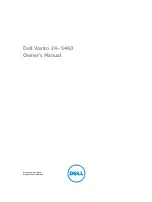
338
Special Math Instructions
Section 5-23
Description
DBS(––) divides the 32-bit (8-digit) signed binary data in Dd+1 and Dd by the
32-bit signed binary data in Dr+1 and Dr, and outputs the 16-digit signed
binary result to R+3 through R. The quotient is placed in R+1 and R, and the
remainder is placed in R+3 and R+2.
Note
Refer to
1-7 Calculating with Signed Binary Data
for more details.
Flags
ER:
Dr+1 and Dr contain 0.
Indirectly addressed EM/DM word is non-existent.
(Content of
*
EM/
*
DM word is not BCD, or the EM/DM area boundary
has been exceeded.)
EQ:
ON when the content of R+1 and R (the quotient) is 0, otherwise OFF.
Example
In the following example, DBSL(––) is used to divide the signed binary con-
tents of IR 101 and IR 100 with the signed binary contents of DM 0021 and
DM 0020 and output the result to LR 24 through LR 01.
5-23 Special Math Instructions
5-23-1 FIND MAXIMUM – MAX(––)
R+1
R
Quotient
Remainder
Dd+1
Dd
Dr+1
Dr
R+3 R+2
DBSL(
−−
)
100
DM 0020
LR 01
Address Instruction
Operands
00000
LD
00000
00001
DBSL(
−−
)
100
DM
0020
LR
21
00000
B
1
5
C
0
0
1
A
D
F
7
0
F
F
F
A
(–8,736,420)
(26)
(–336,016 and –4/26)
F
F
7
A
0
0
0
0
F
F
F
C
F
F
F
F
Remainder (–4)
Quotient (–336)
÷
Dd+1: IR 101
Dd: IR 100
Dr+1: DM 0021
Dr: DM 0020
R: LR 01
R+1: LR 02
R+2: LR 03
R+3: LR 04
R
1
:
First word in range
IR, SR, AR, DM, EM, HR, TIM/CNT, LR
C
:
Control data
IR, SR, AR, DM, EM, HR, TIM/CNT, LR, #
Ladder Symbols
Operand Data Areas
@MAX(
−−
)
C
R
1
D
D
:
Destination word
IR, SR, AR, DM, EM, HR, LR
MAX(
−−
)
C
R
1
D















































